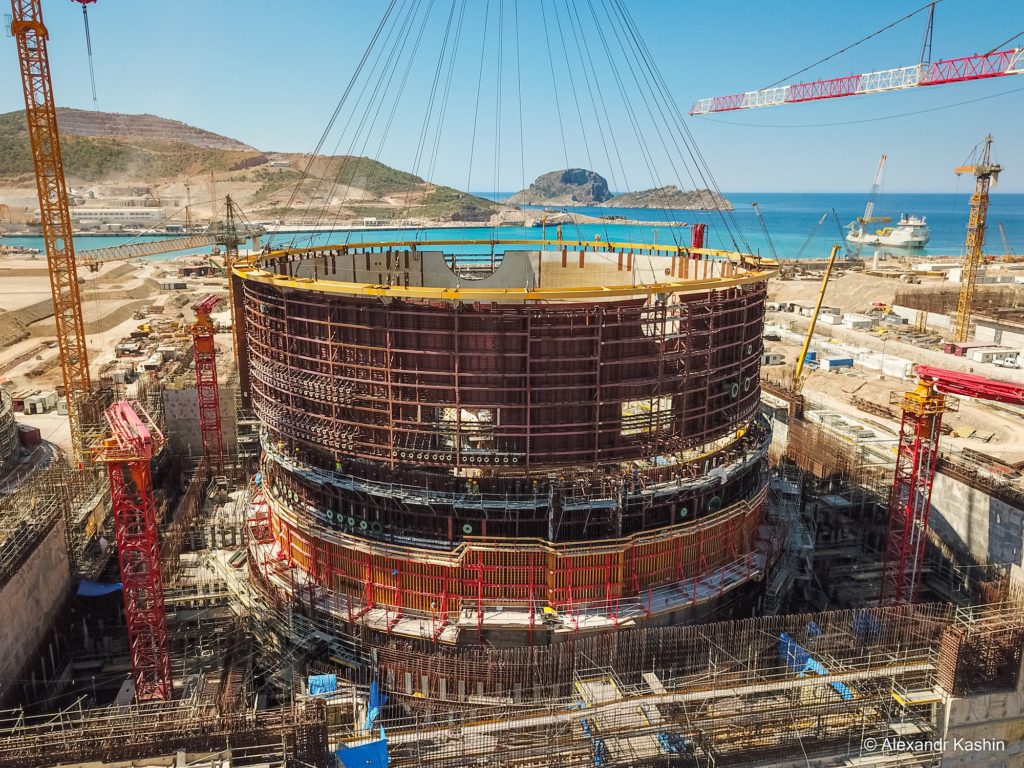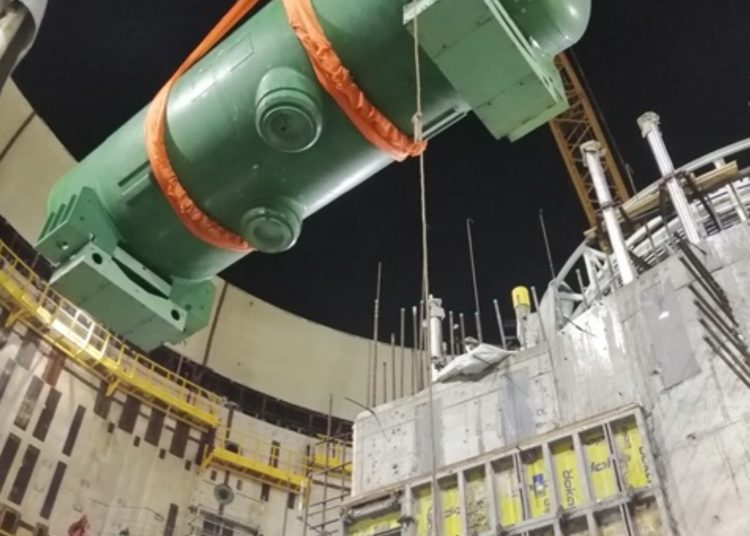Levent Kenez/Stockholm
In a session held May 13,, members of the Turkish Parliament’s state enterprises committee raised serious concerns over the Akkuyu nuclear power plant, a $25 billion energy project led by Russia’s Rosatom. The committee, which reviewed the balance sheets and strategic activities of several state-owned enterprises including Türkiye Nükleer Enerji A.Ş., heard a series of questions and criticisms regarding the plant’s financial burdens, sovereignty implications, safety protocols and transparency. The meeting examined the plant’s ownership structure, financial agreements and national security implications as well as Turkey’s reliance on foreign technology for such a strategically vital project.
Several members of parliament criticized the disproportionate Russian control over the plant, noting that Rosatom currently holds 99 percent of the shares in Akkuyu Nükleer A.Ş. They demanded documentation on any existing Turkish equity participation and questioned the absence of Turkish influence in decision-making processes.
The plant, which is expected to supply about 10 percent of Turkey’s electricity once fully operational, comes with a significant financial commitment. Turkey has agreed to purchase a large portion of the electricity at a fixed rate of 12.35 U.S. cents per kilowatt-hour for 15 years. Lawmakers noted that this is far above average domestic and global electricity prices.
“The average price of electricity in Turkey is around 8 cents per kilowatt-hour. This 12.35-cent guarantee will be a burden on our people,” said one lawmaker.
A global comparison presented during the session showed that wholesale electricity prices in countries like the United States, United Kingdom and France typically range from 4 to 7 cents per kilowatt-hour. Critics argued that this pricing structure is nearly double the global average and raises serious questions about long-term affordability and fiscal prudence.
Lawmakers also pointed to multiple delays in construction. Officials said Germany’s Siemens, originally contracted for key components, had fallen behind schedule, prompting Rosatom to consider alternatives from Chinese suppliers.
Member of parliament Nermin Yıldırım Kara of Hatay questioned the broader implications of such foreign dependence. “How many Turkish engineers are in leadership positions at Akkuyu? Are we building our domestic expertise or importing our entire nuclear future?” she asked.
The December 2024 issue of “Communication and Diplomacy,” a publication of the Turkish Presidential Directorate of Communications, described the Akkuyu personnel training program as an example of Russia’s “education diplomacy.”

According to a study by Büşra Selin Erdogan and Burak Erdogan, more than 319 Turkish engineers have been trained in Russia since the program’s launch in 2011. These individuals now form the core workforce at Akkuyu. The authors argue that the program not only meets Turkey’s technical needs but also furthers Russian influence by embedding Russian-trained personnel and methodologies into the Turkish nuclear sector.
The initiative requires trainees to learn Russian and integrate into Russian academic environments, thereby increasing Russia’s soft power in Turkey. The study concludes that this dual-use strategy strengthens Moscow’s position in Turkey’s energy infrastructure.
Environmental concerns also surfaced, including the risk of thermal pollution and marine ecosystem disruption from the plant’s cooling system.
Questions also emerged around the plant’s long-term waste management. Mehmet Tahtasız of the Republican People’s Party (CHP) asked whether radioactive waste would be stored in Turkey or shipped abroad. “We have no infrastructure or experience for managing nuclear waste. Are we ready for the liabilities this entails?” he asked. Lawmakers requested information on contingency planning and whether reserve funds were in place for decommissioning or potential disaster cleanup.
Although constructed in Turkey, the Akkuyu nuclear power plant has attracted criticism for the limited participation of domestic companies and professionals. Lawmakers noted that only 25 to 30 percent of the project’s contracts and work have involved Turkish companies, raising concerns about the lack of local integration in what is described as a nationally significant energy venture. Questions were also raised about the transparency of procurement processes, with calls for clarification on whether the contracts were subject to competitive bidding under Turkish public procurement laws and why they have not been made publicly accessible through official platforms.
Additional concerns came from regions affected by earthquakes that struck Turkey’s Southeast in 2023, where residents continue to face frequent power outages. Lawmakers highlighted the perceived imbalance between ongoing blackouts in southern provinces and the uninterrupted energy supply to the Akkuyu plant, as well as the continued export of electricity to neighboring countries. The contrast has reportedly fueled public frustration.
CHP member of parliament Mahmut Tanal demanded detailed disclosures on seismic assessments, evacuation plans and the availability of emergency supplies such as iodine tablets.
“This plant is in an earthquake-prone area. Are local authorities prepared for a potential disaster?” he said.
Critics further warned of the strategic vulnerabilities associated with heavy reliance on foreign-controlled infrastructure in the energy sector. They argued that allowing a foreign entity to dominate a critical segment of national energy production poses long-term risks and urged a shift toward renewable energy investments and stronger support for domestic industry.

Nordic Monitor previously reported that according to a communiqué dated February 23, 2025, Energy Minister Alparslan Bayraktar confirmed that Ankara could invoke Article 5, Paragraph 5 of the 2010 bilateral agreement with Russia to take control of the Akkuyu project if necessary. The clause allows Turkey to influence matters of corporate governance such as share distribution and project financing on the basis of national security.
Despite Rosatom’s 99 percent ownership, the Turkish government considers Akkuyu to be a domestic commercial entity subject to Turkish law. The plant’s project company, Akkuyu Nükleer A.Ş., is registered in Ankara. However, Turkey has not exercised its right to purchase up to 49 percent of the shares in the company.
The plant will eventually consist of four reactors with a total capacity of 4,800 megawatts, expected to supply around 10 percent of Turkey’s electricity. The $20 billion facility is entirely backed by Russian state-affiliated companies.
After multiple delays in previous years, the Akkuyu nuclear reactor, originally scheduled to become operational in October 2024, has faced further postponements due to supplier-related issues, according to official statements. The Turkish Presidency has since announced that initial trial production is now expected to begin toward the end of 2025. Full-scale operations at the facility are planned for 2028. The first batch of nuclear fuel was delivered to the site in Mersin late last year.












